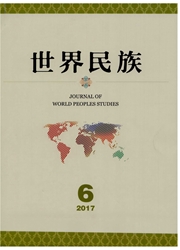

 中文摘要:
中文摘要:
土耳其非穆斯林少数民族主要包括信仰基督教的希腊人、亚美尼亚人、保加利亚人、格鲁吉亚人、阿拉伯人,信仰犹太教的犹太人,信仰巴哈伊教、耶齐德派和原始宗教的阿拉伯人及亚述人后裔。尽管《洛桑条约》对少数民族的权利地位做出明确规定,但在现代化进程中,非穆斯林少数民族的宗教信仰自由、教育权利、财产财富、人身安全、上升渠道均遭到限制。正义与发展党上台后顺应入盟要求,积极修订宪法和出台法律提升少数民族的政治与社会地位,但非穆斯林少数民族政治社会处境的根本改善需要突破《洛桑和约》的概念框架,弱化凯末尔主义对国家发展方向的影响,建构基于公民民族主义的普遍认同。
 英文摘要:
英文摘要:
Turkish Non-Muslim minorities consist of Armenians, Greeks, Bulgarian, Georgian, Arabs who are all Christians, Jews who are Judaist, Arabs and Assyrians who are Baha' is, Yezidis and primitive polytheists. Though the Treaty of Lausanne defined the rights and status of minorities already, Kemalism still did not put these rights into practice wholly, and so restricted Non-Muslim minorities'religion freedom, education rights, property and wealth, personal safety, and rising channel during the process of modernization. After the Justice and Development Party came to power, it rapidly revises the Constitution and introduces a lot of relevant laws to enhance political and social status of non-Muslim minorities for meeting the requirement of EU. However, the fundamental improvement of non-Muslim minorities' political and social situation needs to break through the framework of "Treaty of Lausanne", weak the impact of Kemalism on the national development and construct the generally accepted identity based on civic nationalism.
 同期刊论文项目
同期刊论文项目
 同项目期刊论文
同项目期刊论文
 期刊信息
期刊信息
